If you’ve ever found yourself anxiously waiting for your furry companion to do their business during walks or potty training sessions, then “How Long To Wait For A Dog To Poop” is the solution you’ve been looking for. This innovative product takes the guesswork out of doggie bathroom breaks by providing you with the essential information and techniques to help your dog go potty quickly and efficiently. No more standing around aimlessly or wondering if your dog needs more time – with “How Long To Wait For A Dog To Poop,” you’ll have all the tools you need to ensure a stress-free and timely poop routine for your four-legged friend.
Understanding a Dog’s Poop Schedule
Having a regular and predictable poop schedule is essential for our furry friends’ overall health and well-being. Just like humans, dogs have their own unique patterns when it comes to digestion and bowel movements. By understanding and monitoring your dog’s poop schedule, you can ensure their digestive system is functioning properly and detect any potential health issues early on. In this article, we will delve into the importance of a regular schedule, the factors that influence poop schedules, how to identify constipation, managing frequent poop habits, training your dog for scheduled poops, the impact of diet on your dog’s poop, signs of serious health problems, and how to manage dogs with special digestive needs.
Importance of a Regular Schedule
Maintaining a regular poop schedule not only benefits your dog but also makes your life as a pet parent much easier. When you have an idea of when your dog needs to go potty, you can plan your outings and daily activities accordingly. A regular schedule can also prevent accidents in the house and save you from the hassle of dealing with unexpected messes.
Furthermore, a consistent poop schedule often indicates that your dog’s digestive system is functioning properly. Regular bowel movements suggest that the body is effectively absorbing nutrients and eliminating waste. By paying attention to your dog’s poop habits, you can detect any changes or irregularities, potentially identifying underlying health conditions before they become more serious.
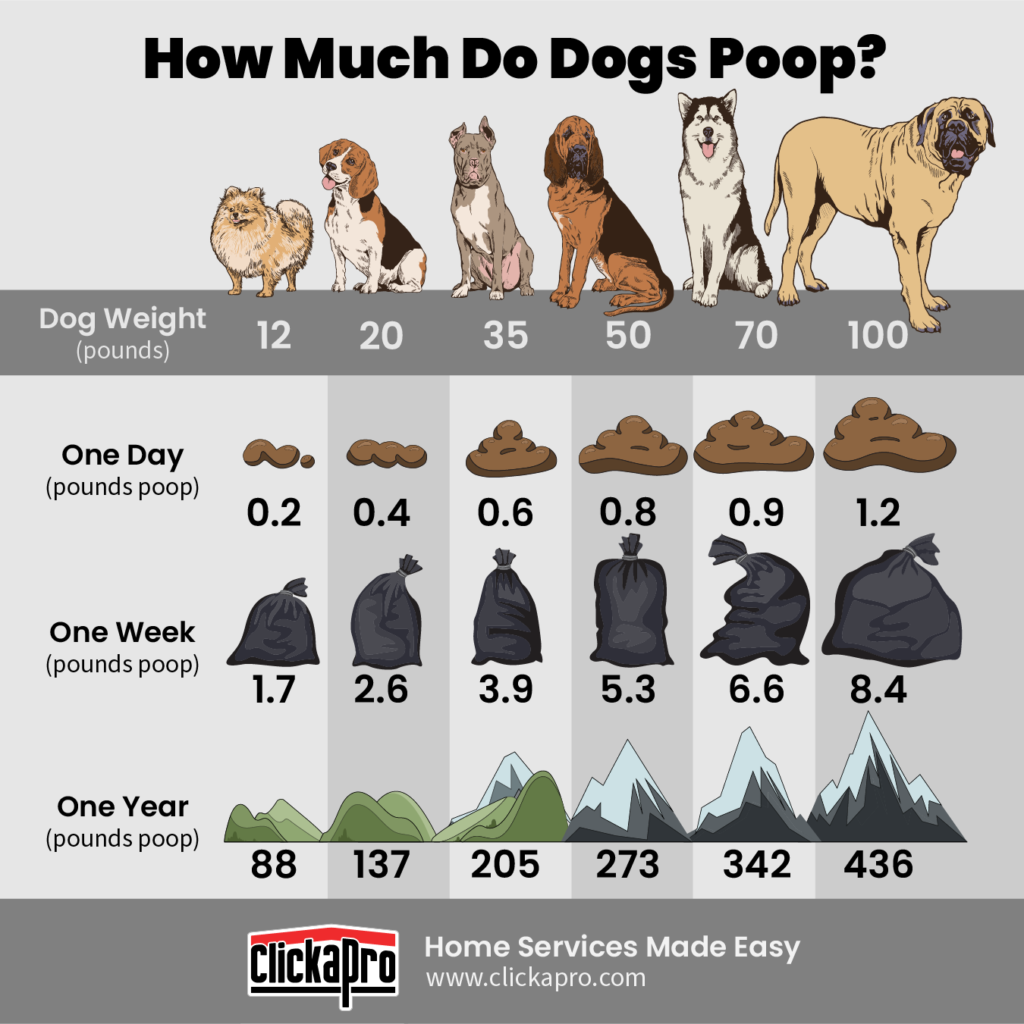
Factors Influencing Poop Schedules
A dog’s poop schedule can depend on several factors, including their age, diet, exercise routine, and overall health. Understanding these factors will help you better comprehend why your dog might have a specific poop schedule.
Daily Digestion and Bowel Movements
Just like humans, dogs have different metabolisms that determine how quickly they digest and eliminate food. On average, dogs tend to have one to two bowel movements per day. However, it is essential to note that individual variations exist. Some dogs may defecate more frequently, while others may go less often. Paying attention to your dog’s regular bowel movements will help you establish a baseline for what is normal for them.
Varying Frequency in Puppies vs. Adult Dogs
Puppies have faster metabolisms and less developed digestive systems compared to adult dogs. As a result, they may need to relieve themselves more frequently, sometimes up to five or six times a day. However, as puppies grow and their digestive systems mature, their poop schedule typically becomes more regulated, aligning with that of adult dogs.
Causes for Irregular Poop Schedules
While regularity is ideal, there are instances where a dog’s poop schedule may become irregular. Several factors can contribute to these changes, including dietary changes, exercise levels, and anxiety or stress.
Dietary Changes and Impact on Bowel Movements
The food your dog consumes plays a crucial role in their overall digestive health. Any sudden changes in diet, such as switching to a new brand or introducing new ingredients, can disrupt your dog’s poop schedule. It’s normal for their bowel movements to be inconsistent during this transition period. However, if the irregularity persists beyond a week or if your dog shows signs of discomfort, it’s essential to consult with your veterinarian.
Exercise and Its Effect on Dog’s Digestion
Regular exercise is vital for a dog’s overall well-being, including their digestion. Physical activity helps stimulate bowel movements and improves the efficiency of their digestive system. However, changes in exercise levels, such as sudden increases or decreases in activity, can impact their poop schedule. Dogs who engage in vigorous exercise may need to poop more frequently, whereas a decrease in physical activity may result in stools becoming less frequent and larger in size.
Anxiety and Stress-Related Changes in Elimination
Like humans, dogs can experience anxiety and stress, which can influence their bowel movements. These emotional factors may cause irregular poop schedules, including diarrhea or constipation. Common stressors for dogs include changes in their environment, separation anxiety, or traumatic experiences. It’s important to address the underlying causes of stress and provide a safe and calm environment for your dog to help regulate their poop schedule.

Identifying Constipation in Dogs
Constipation occurs when a dog has difficulty passing stools or has infrequent bowel movements. It can be uncomfortable and even painful for our furry friends. Identifying constipation early on is crucial to prevent further complications. Look out for the following signs:
Physical Signs of Constipation
- Straining or difficulty while trying to defecate
- Dry, hard, or pebble-like stools
- Decreased frequency of bowel movements
- Loss of appetite
- Abdominal discomfort or bloating
Causes for Constipation in Dogs
There are several reasons why dogs may become constipated. These include dehydration, lack of fiber in their diet, ingestion of foreign objects, certain medications, and underlying health conditions such as anal gland issues or tumors. If you suspect your dog is constipated, it’s important to consult with your veterinarian to determine the underlying cause and develop an appropriate treatment plan.
When to Seek Veterinary Help
While mild constipation can often be resolved with simple interventions such as increased water intake or dietary changes, severe or chronic constipation may require veterinary intervention. If your dog shows signs of distress, becomes lethargic, or has been unable to pass stool for more than 48 hours, it’s essential to seek professional help. Your veterinarian can perform a thorough examination and recommend appropriate treatments or medications to alleviate constipation.
Dealing with Frequent Poop Habits
On the other end of the spectrum, some dogs may have frequent poop habits. While it’s essential to ensure your dog is not experiencing excessive diarrhea or any related health issues, frequent bowel movements can be considered normal for certain individuals. Here’s what you need to know:
Is It Healthy for Dogs to Poop Frequently?
Frequent bowel movements can be normal for some dogs, particularly those with high metabolisms or those who have a high-fiber diet. It is essential to differentiate between regular, well-formed stools and frequent diarrhea, as the latter can indicate underlying health conditions. If your dog’s stools are consistently loose or watery, it’s crucial to consult with your veterinarian to rule out any potential illnesses or dietary sensitivities.
How to Manage Frequent Poop Habits
To manage frequent poop habits, it’s important to consider your dog’s diet and make appropriate adjustments. Consult with your veterinarian to ensure your dog’s nutritional needs are being met and that their high poop frequency is not indicative of an underlying issue. In some cases, feeding smaller, more frequent meals throughout the day can help regulate their bowel movements. Additionally, make sure your dog has ample access to clean, fresh water to stay hydrated and aid digestion.

Training Your Dog for Scheduled Poops
Training your dog to have scheduled poops can be beneficial for both you and your furry friend. By establishing a routine, you can help regulate their digestive system and avoid accidents in the house. Here are some effective strategies for training your dog:
The Role of Regular Exercise
Regular exercise is an essential part of maintaining a healthy poop schedule for your dog. Ensuring your dog gets enough physical activity can stimulate their digestive system and promote regular bowel movements. Engage in daily exercise activities such as walks, playtime, or training sessions to keep your dog active and encourage healthy digestion.
Employing Mealtime Strategies
Feeding your dog at regular intervals can help establish a predictable poop schedule. Divide their daily food portions into two or three meals and provide meals at the same time every day. Feeding your dog at consistent times can help regulate their digestive system and encourage regular bowel movements. Additionally, avoid feeding your dog too close to bedtime, as this may disrupt their sleep schedule and lead to unwanted accidents.
Using Reward-Based Training
Positive reinforcement is a powerful tool when it comes to training your dog for scheduled poops. When your dog successfully relieves themselves outside or in a designated area at the desired time, reward them with treats, praise, or play to reinforce this desired behavior. Consistency and repetition are key to establishing a successful training routine.
Maintaining Regular Routines
Consistency is crucial when training your dog for scheduled poops. Try to maintain a regular daily routine, including meal times, exercise sessions, and potty breaks. Dogs thrive on routine and will be more likely to develop a reliable poop schedule when their daily activities are consistent.
How Diet Affects Your Dog’s Poop
The quality and composition of your dog’s diet have a significant impact on their poop. Choosing the right food for your dog’s digestive balance is essential for their overall health. Here’s what you need to know:
Choosing the Right Food for Digestive Balance
Selecting a high-quality, nutritionally balanced food is crucial for maintaining your dog’s digestive health. Look for dog foods that contain high-quality protein sources, complex carbohydrates, and healthy fats. Avoid foods with artificial additives, fillers, or excessive amounts of grains, as these can lead to digestive upset or allergies.
Understanding Food Allergies and Sensitivities
Food allergies and sensitivities can manifest as digestive issues in dogs, including diarrhea or constipation. Common allergens include beef, chicken, dairy, wheat, and soy. If your dog consistently experiences digestive problems, it may be worth considering a hypoallergenic or limited ingredient diet. Consult with your veterinarian for guidance and potential allergy testing if necessary.
Hydration and Its Role in Digestion
Proper hydration is crucial for maintaining a healthy digestive system in dogs. Ensure your dog has access to clean, fresh water at all times. Dehydration can cause constipation or make it difficult for your dog’s body to properly digest and eliminate waste. Encourage your dog to drink water regularly, especially during hot weather or after exercise.

Signs of Serious Health Problems in Dogs
While variations in poop schedules are normal, it’s important to be aware of potential red flags that may indicate serious underlying health conditions. Here are some signs to watch out for:
Irregular Bowel Movements as a Red Flag
If your dog’s poop schedule suddenly changes or they consistently experience diarrhea, constipation, or abnormal-looking stools, it may be a sign of an underlying health problem. Additionally, blood in the stool, excessive straining, or noticeable discomfort during elimination should never be ignored, as they may indicate serious health issues.
Diseases Associated with Irregular Pooping
Several diseases and conditions can cause irregular poop schedules in dogs. These include inflammatory bowel disease, gastrointestinal infections, parasites, pancreatitis, and more. If you notice persistent changes in your dog’s bowel movements or any concerning symptoms, it’s crucial to consult with your veterinarian to ensure early detection and appropriate treatment.
Importance of Regular Vet Checkups
Regular veterinary check-ups are essential for monitoring your dog’s overall health, including their digestive system. During these visits, your veterinarian can assess your dog’s poop schedule, evaluate their overall condition, and address any concerns you may have. Routine check-ups can help identify potential health issues early on, improving the chances of successful treatment and management.
Managing Dogs with Special Digestive Needs
Certain dogs may have special digestive needs due to their breed, age, or weight. Understanding these specific needs will help you provide appropriate care and support for your furry companion.
Specific Breeds and Their Digestive Needs
Some dog breeds, such as brachycephalic breeds (e.g., Bulldogs, Pugs) or those prone to gastrointestinal issues (e.g., German Shepherds, Boxers), may require special attention when it comes to their digestion. These breeds often have unique needs, including specific dietary requirements, smaller and more frequent meals, and potential restrictions on certain types of exercise. Consulting with your veterinarian or breed-specific resources can provide valuable guidance for managing these digestive needs.
Senior Dogs and Digestive Issues
As dogs age, their digestive system may become less efficient, leading to more frequent digestive problems. Senior dogs may experience changes in their metabolism, reduced mobility, or dental issues, all of which can impact their digestion. Providing a nutritious diet tailored to senior dogs’ needs, regular veterinary check-ups, and a proactive approach to their overall health can help manage and prevent age-related digestive issues.
Overweight Dogs and Digestive Problems
Obesity is a common health issue in dogs and can lead to various digestive problems. Excess weight puts additional strain on the digestive system and can lead to an increased risk of conditions such as pancreatitis or liver disease. If your dog is overweight, it’s crucial to work with your veterinarian to develop a weight loss plan that includes a balanced diet, regular exercise, and portion control to support their digestive health.
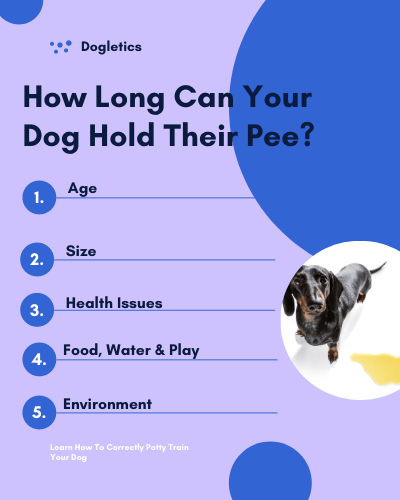
Concluding Remarks and Suggestions
Promoting healthy poop habits in your dog is vital for their overall well-being. By understanding a dog’s poop schedule, you can identify potential health issues and provide prompt treatment. Remember to pay attention to any changes in your dog’s poop schedule, consult with your veterinarian when necessary, and maintain a regular routine to support their digestive health. With appropriate care, attention, and love, you can help ensure a happy and healthy digestive system for your beloved furry companion.

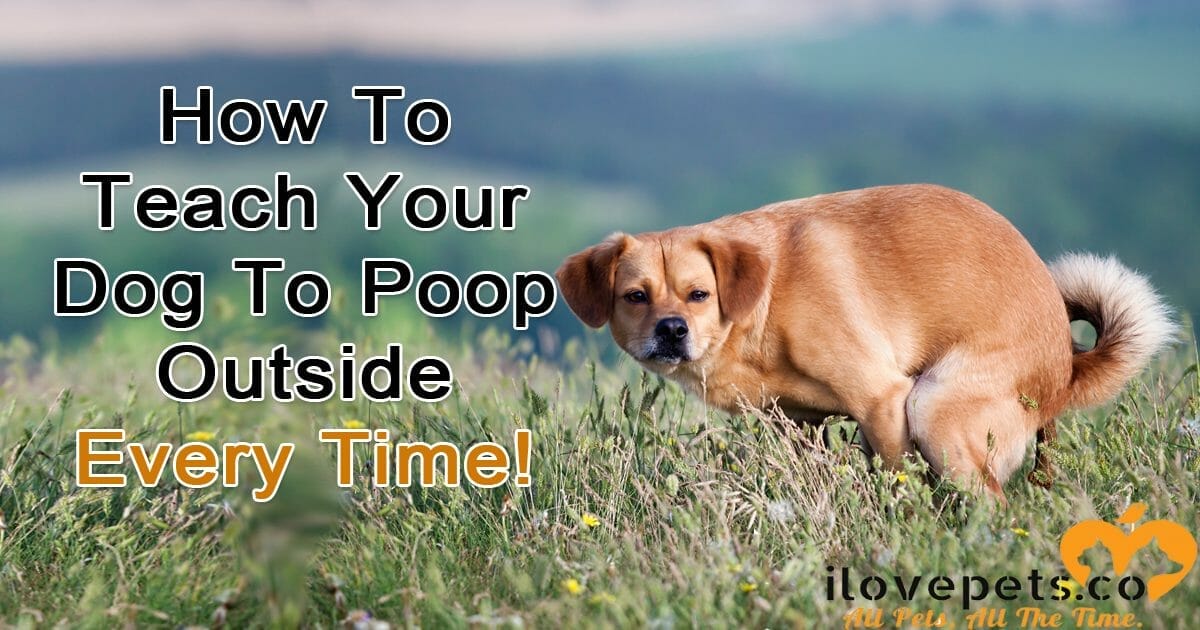

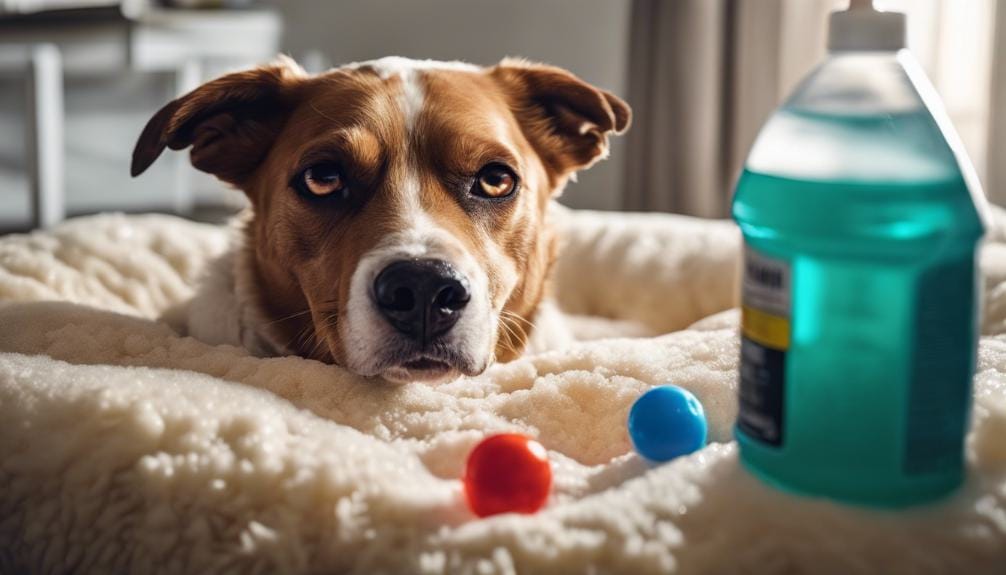
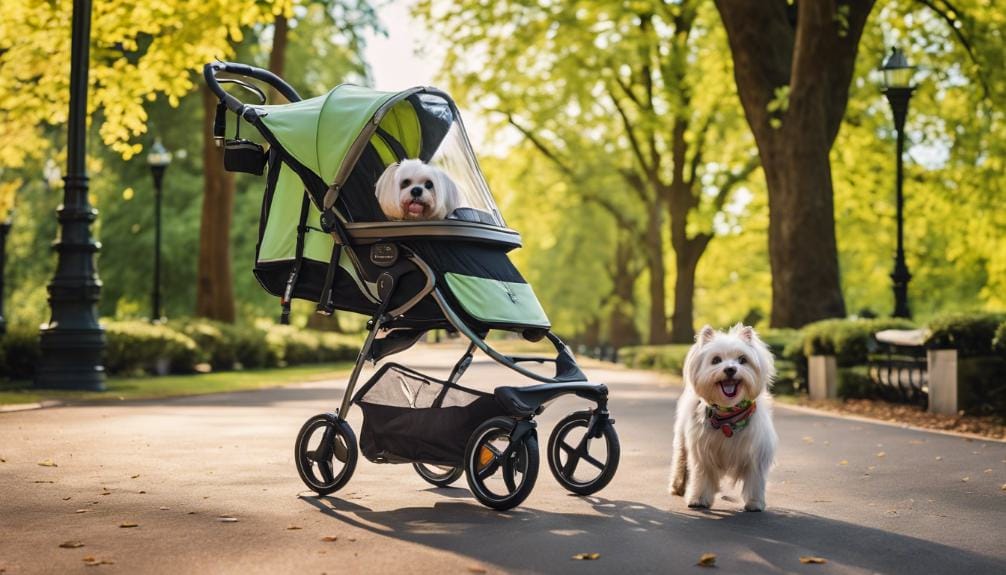
Leave a Reply
You must be logged in to post a comment.